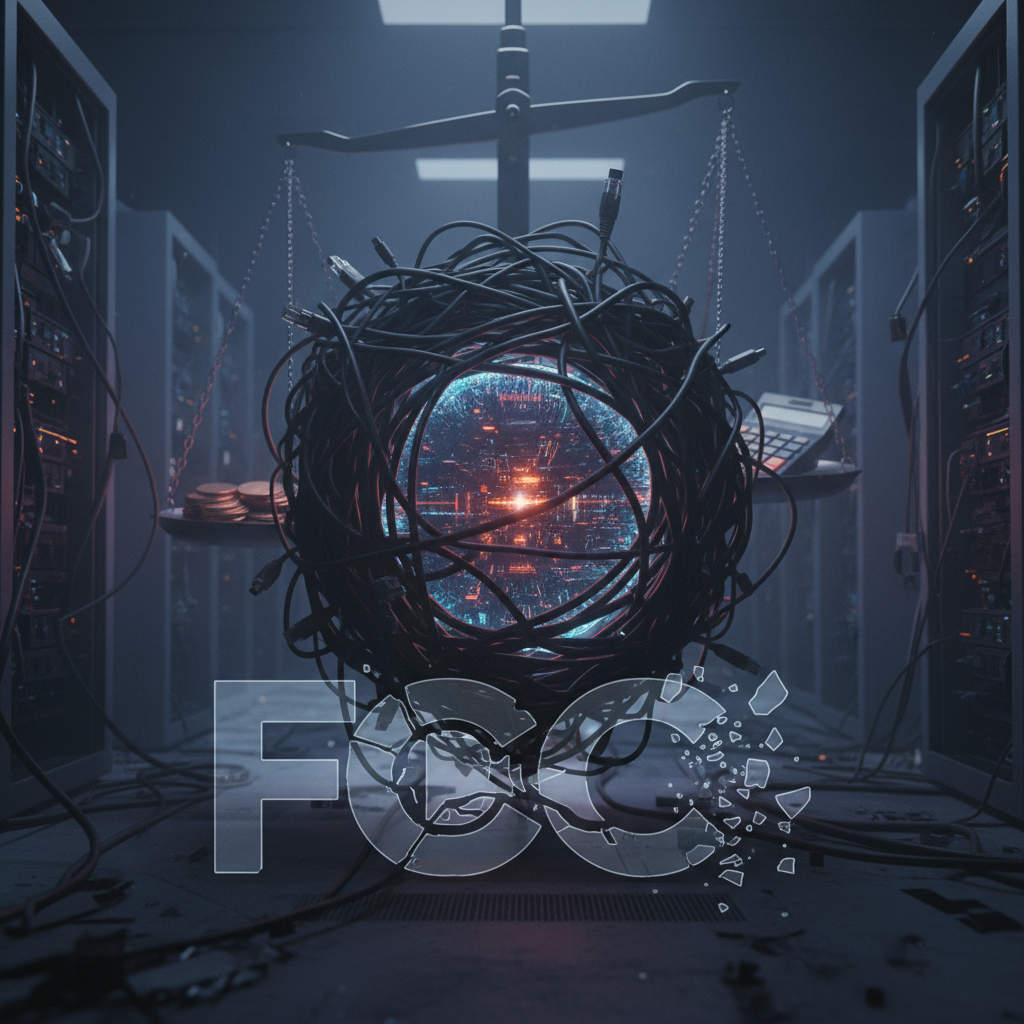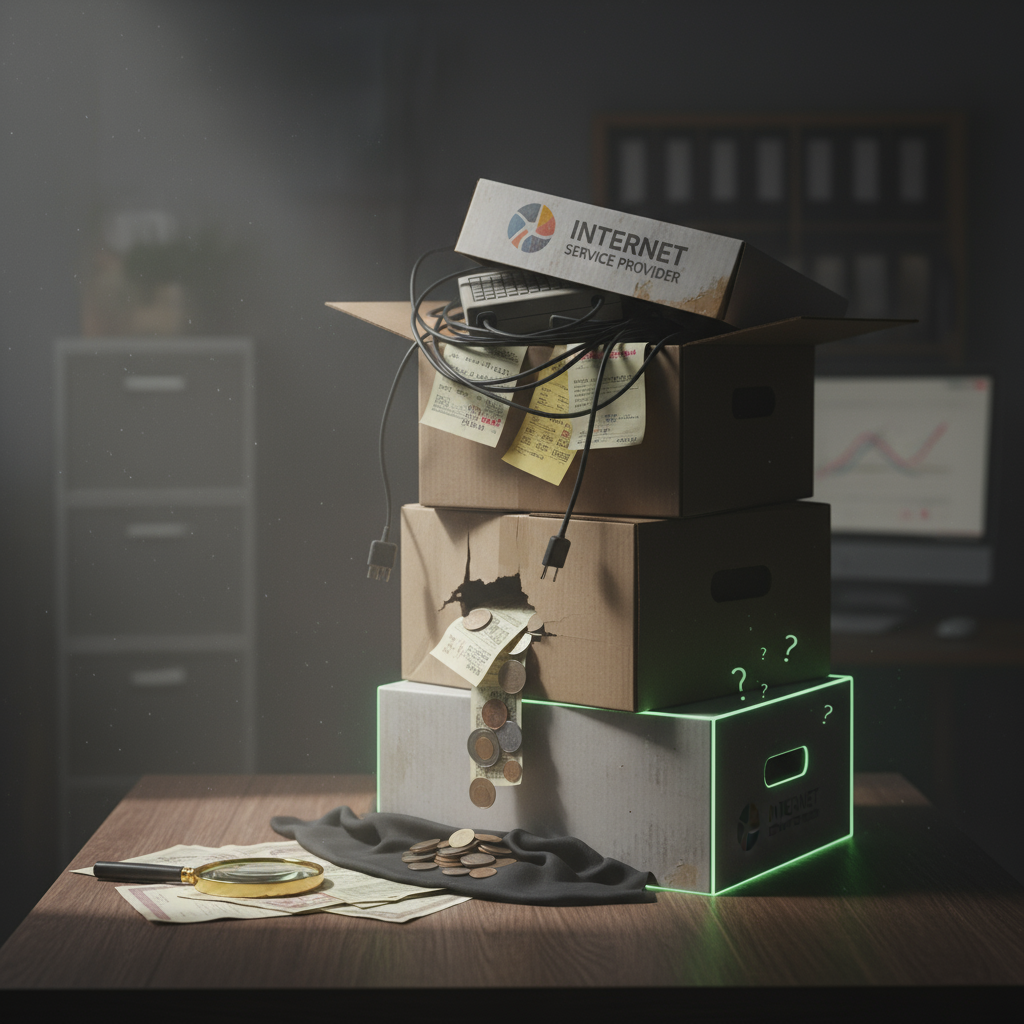The Hidden Costs of Connectivity: Is the FCC Retreating on Transparency?

Remember that feeling of opening your internet bill, eyes scanning for the familiar monthly charge, only to be ambushed by a slew of unexpected fees? Activation fees, equipment rental fees, regulatory recovery fees, administrative fees, local franchise fees – the list often feels endless, and the total rarely matches the advertised price. For years, consumers have voiced their frustration over this opaque billing practice, and the FCC, under previous leadership, took steps to address it with a rule requiring ISPs to clearly list every single fee. But now, it seems this beacon of transparency might be dimming. Recent reports suggest the FCC is considering rolling back this crucial rule, apparently because… there are “too many” fees to list. Let’s unpack what this potential reversal could mean for your wallet and your relationship with your internet provider.
A History of Hidden Charges: Why Transparency Matters

The internet service provider industry has long been plagued by a labyrinthine pricing structure. ISPs often lure customers with attractive introductory rates, only to later tack on a multitude of charges that inflate the final bill. These fees aren’t always directly related to the service itself; some are surcharges passed on from local governments, while others are internal administrative costs disguised as external necessities. The problem isn’t just the existence of these fees, but their lack of clarity and upfront disclosure.
For consumers, this obfuscation makes it incredibly difficult to compare prices effectively between different providers. How can you truly compare a $50 advertised plan with another $50 plan if essential, non-negotiable fees add $15 to one and $25 to the other? This lack of transparency undermines fair competition and empowers ISPs to maintain their often-dominant market positions without genuine accountability. The FCC’s original rule aimed to rectify this, putting the power of informed decision-making back into the hands of the consumer.
The Proposed Rollback: Too Many Fees, or Too Much to Hide?
The idea that there are “too many” fees for ISPs to list explicitly on a bill raises more questions than it answers. Is the task of disclosure genuinely too burdensome for multi-billion dollar corporations with sophisticated billing systems? Or is this an admission that the sheer volume of these hidden charges would be an embarrassing exposé for the industry?
If true, this argument suggests a deeper problem: that ISPs have an excessive number of discretionary charges that aren’t inherently part of the core service cost. Instead of demanding a rollback of clearer billing, perhaps the answer should be to scrutinize the legitimacy and necessity of these numerous fees in the first place. Consumers shouldn’t have to navigate a minefield of hidden charges just to access essential internet services.
Consider the parallel with airline tickets, where “all-in” pricing became a standard due to similar consumer frustrations over hidden baggage, seat selection, and booking fees. Or the financial sector, where regulations often mandate clear disclosure of all applicable costs. Why should internet service, a utility vital to modern life, be exempt from similar transparency standards?
What This Means for Consumers and the Future of ISP Accountability
The potential rollback of this FCC rule could have significant negative implications for consumers. Without clear and mandatory disclosure, the onus once again falls entirely on the customer to meticulously scrutinize every detail of their bill, often after they’ve already committed to a service. This makes price comparison even more challenging and empowers ISPs to continue their practice of “bill creep.”
- Increased Bill Shock: Customers will be more susceptible to unexpectedly high bills, as the “true” cost of their internet service remains hidden until the statement arrives.
- Hindered Competition: Without easy comparison of all-in pricing, it becomes harder for smaller, more transparent providers to compete against established giants who can play games with advertised rates.
- Erosion of Trust: This move could further erode consumer trust in ISPs and regulatory bodies, as it signals a step back from consumer protection.
- Less Accountability: When fees are opaque, it’s harder for consumers or regulators to challenge their validity or fairness.
Ultimately, this isn’t just about a few extra dollars on your bill; it’s about the principle of fair consumer practice. Internet access is no longer a luxury, but a necessity for work, education, and social connection. The industry that provides this essential service should be held to high standards of transparency, not allowed to retreat into a fog of confusing charges.
The Call for Clearer Skies
The argument that there are “too many” fees to list explicitly feels like a flimsy excuse to avoid accountability. Instead, it should serve as a stark indicator of an industry practice that desperately needs reform, not regulatory retreat. Consumers deserve to know exactly what they’re paying for, upfront and without ambiguity, when they sign up for internet service.
As this discussion unfolds, it’s crucial for consumers to voice their concerns. Advocacy groups, consumer protection agencies, and individuals must remind the FCC of its mandate to protect the public interest. The goal shouldn’t be to make it easier for ISPs to obscure costs, but to empower consumers with the information they need to make informed decisions. Let’s hope the FCC reconsiders this proposed rollback and instead champions a future where the true cost of connectivity is clear for everyone to see.

